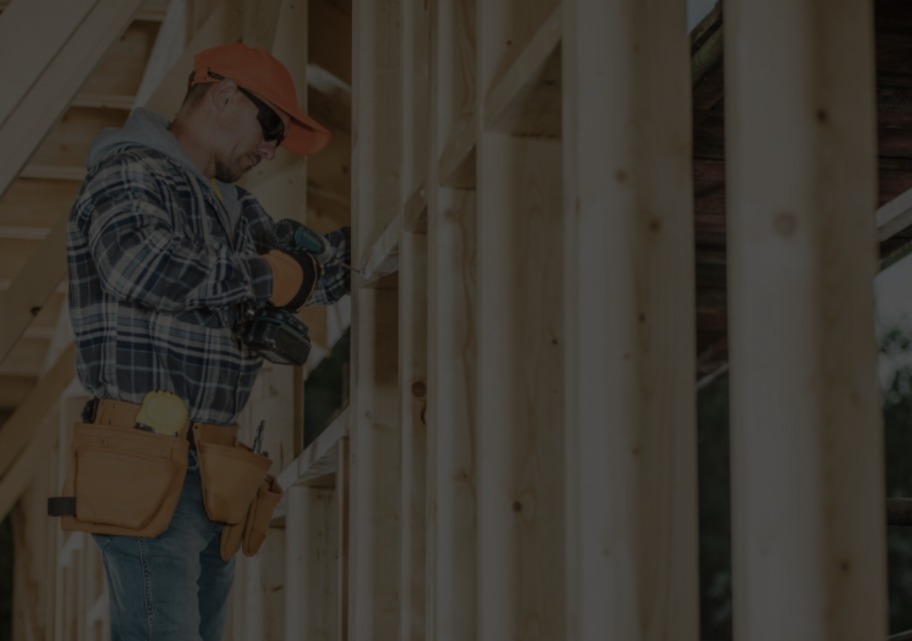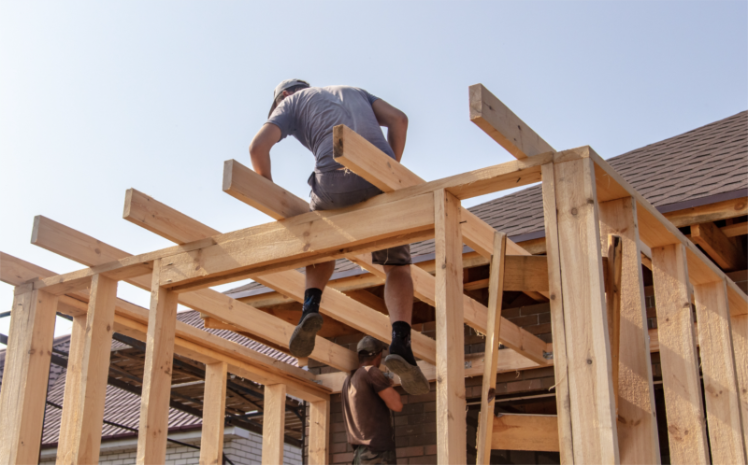Domestic vs Commercial Builder Registration: Which Path Is Right for You?
If you're ready to take the next step in your building career, getting registered with the Victorian Building Authority/Building and Plumbing Commission (VBA/BPC) is a must. But before you dive into the paperwork, there's a crucial question to answer:

If you're ready to take the next step in your building career, getting registered with the Victorian Building Authority/Building and Plumbing Commission (VBA/BPC) is a must. But before you dive into the paperwork, there's a crucial question to answer: should you apply for Domestic Builder registration or Commercial Builder registration?
Both licences are valuable, but they lead to different types of work and require different experience. This guide will help you understand the key differences, figure out which path suits your background, and give you the confidence to move forward with the right application.
Why You Need the Right Licence
In Victoria, you can’t legally carry out or manage building work over $10,000 in value unless you’re registered with the VBA/BPC. And not just any registration, you need to hold the correct class of licence for the type of work you plan to do.
Choosing the wrong registration path can delay your career, waste time and money, or even get you in trouble if you take on work, you’re not licensed for. So, it’s worth getting this decision right from the start.
You can find more information about licensing requirements directly from the VBA/BPC.
What Does a Domestic Builder Do?
If your experience is mostly in residential construction, like houses, units, or small townhouses, then you’re probably looking at a Domestic Builder licence.
There are two main types of domestic builder registration:
- Domestic Builder (Unlimited) – This allows you to manage and carry out all aspects of residential building work. You’ll need to show a broad understanding of construction, site supervision, contracts, safety, and project management across the entire build.
- Domestic Builder (Limited) – This licence applies to specific trades or components of residential building work, such as carpentry, waterproofing, or bricklaying.
If you've spent most of your time on home building sites or have worked in a trade that services residential construction, this might be the path that makes the most sense for your experience.
You can read more about domestic classes of registration here.
What Does a Commercial Builder Do?
A Commercial Builder registration is designed for those who work on larger or more complex non-residential projects, think schools, warehouses, shops, apartment blocks over three storeys, and office buildings.
Like domestic registration, commercial builder registration also comes in classes:
- Commercial Builder (Unlimited) – This lets you manage or carry out all commercial building work for structures not used as homes.
- Commercial Builder (Limited) – This applies to specific types of commercial work, like low-rise construction, medium rise construction, or internal fit-outs both structural and non-structural.
If your experience includes supervising on commercial job sites, managing crews on civil or industrial builds, or working on the non-residential side of construction, this could be the licence you need.
Full details on commercial registration classes can be found here.

Key Differences Between the Two
Here’s a quick breakdown to help you compare:
Understanding these differences is key to choosing a path that not only suits your current skills but supports your long-term career goals.
What the VBA/BPC Will Look For
No matter which licence class you choose, the VBA/BPC will assess you based on:
- Your practical experience on relevant job sites
- Your understanding of building regulations and the Building Act
- Your ability to manage risk, safety, and compliance
- The supporting documentation you provide to back up your claims
- Your referee’s feedback
If you're applying without formal qualifications, you'll need to take the experience-based pathway. That means gathering detailed project documentation, references, site photos, and written descriptions of your role in past jobs. We have some great tips on how to gain these if you don’t have them readily available.
You’ll also need to prepare for an interview and technical assessments to prove your understanding of regulations and on-site responsibilities.
Choosing Based on Your Career Goals
Still not sure which path is right for you? Start by asking yourself:
- Where have I spent most of my time? If you've built homes and worked under domestic building contracts, domestic registration is likely the best fit.
- Do I want to work on larger, more complex projects? If you're aiming for commercial construction, warehousing, or government jobs, a commercial licence gives you the right foundation.
- What are my long-term goals? Think about whether you want to run your own company, subcontract for builders, or work on a specific type of project.
There’s no one-size-fits-all answer here. It’s about matching your experience with your future direction, and being realistic about what kind of work you’re qualified to manage.
Get Help Navigating the Process
Applying for builder registration, whether domestic or commercial, can be a complex process. You’ll need to prepare detailed documentation, keep track of changing VBA/BPC requirements, and present your experience in a way that meets the assessment criteria.
That’s where support makes a difference. We stay up to date with the latest from the VBA/BPC, help you gather the right evidence, and get you ready for the interview and assessments, no guesswork required.

Builder Registration, Helping You Build Your Future
Whether you choose the domestic or commercial path, registration is a big step forward in your building career. It gives you the legal authority to take on bigger projects, manage work more independently, and grow your business with confidence.
The key is choosing the licence class that matches your experience and your goals. Take the time to weigh up where you’ve come from and where you want to go. And if you need help getting there, we’ve got the tools and know-how to guide you through the process, contact us today to start your journey towards registration.


